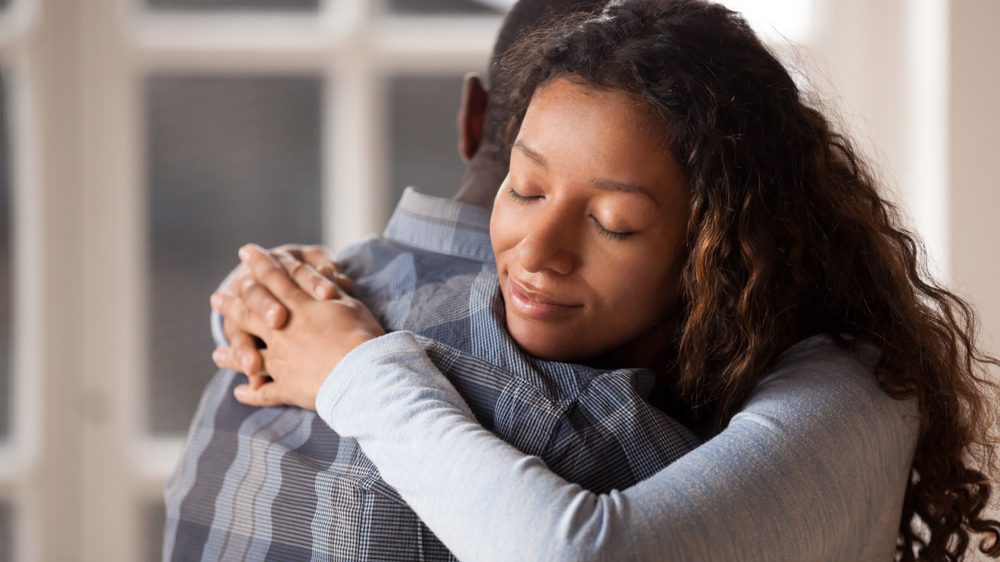
Chronic pain disrupts all aspects of life, and it’s important to remember that the impact isn’t limited to the person who’s suffering. When a loved one is dealing with chronic pain, the effects ripple through families and friendship groups. Chronic pain transforms relationships, but accepting and dealing with those changes is key to moving forward.
It’s very difficult to watch someone you care about deal with chronic pain. Lifestyle adjustments, exhaustion and depression can all put a strain on relationships. Finding a healthy way to cope is essential – fortunately, there are strategies you can use to get there.
How you understand and interact with a loved one with chronic pain will depend on the severity of their condition and the type of pain they’re dealing with. It’ll also depend on the relationship you have with them. But there are some general strategies you can use to keep your connection strong throughout the ups and downs. Whether it’s your spouse, child or friend who’s dealing with a pain condition, the following tips may make both of your lives easier.

How to Support a Spouse with Chronic Pain
If your spouse is living with chronic pain, then you already know how testing it can be. Maintaining intimacy and staying positive may seem difficult, but the following coping strategies could help:
Aim for balanced communication
If your partner is suffering in silence, they may feel isolated and disconnected from you. Encouraging them to talk to you about what they’re going through will help you both to maintain a close bond. That doesn’t mean you should talk about their pain all the time, though – constant discussions might leave them feeling overwhelmed and depressed. So, aim to find a balance in the way you communicate.
Be open about sexuality
Living with chronic pain doesn’t mean you can never enjoy intimacy again – but it might mean you have to make some changes and do a bit of planning rather than being spontaneous. If your spouse experiences more pain at certain times of the day, those are the times you should avoid. It’s also a good idea to explore new positions to see what’s more comfortable for you.
Make time for self-care
If you’re the primary caregiver for your partner, it’s extremely important that you take care of yourself too. Join a caregiver support group or look for online forums and resources that may help you. No matter how difficult it is, make sure to find time for yourself and get support from friends and family.

How to Support a Child with Chronic Pain
People are often surprised to learn that chronic pain is one of the most common health issues among children and teenagers. Pain conditions affect between 15% and 30% of children and can be extremely difficult to deal with. Children coping with pain often have to miss school and other typical childhood activities, while parents are forced to skip work and deal with the emotional burden. To support your child in the best way possible, try using these strategies:
Encourage your child to get back to their normal routine
Although it might be tempting to keep your child out of school when they’re in pain, encouraging them to get back into a normal routine can help them significantly. School tends to keep kids distracted and it’ll also stop them from falling behind. Getting back to normal routines can help stabilise your child’s nervous system, ease their pain and improve their overall mood. However, it’s important to ease them back into daily activities slowly and gradually, and let them rest if they experience a flare-up.
Avoid helping them too much
Parents of children with chronic pain tend to help them in all areas of their lives. However, helping your child too much might actually delay their progress. Encouraging your child to do things for themself might allow them to see what they’re capable of, and gives them the chance to discover their physical limitations.
Encourage children to take a mindful approach
Research now shows that mindfulness can be used as an effective pain management tool. A major study published by Jon Kabat-Zinn in 1985 revealed that mindfulness can reduce pain intensity, anxiety and depression. Encouraging your child to focus on their breathing by taking deep belly breaths is a simple way to get started.

How to Cope with a Friend with Chronic Pain
If you have a friend who’s suffering from chronic pain, you’ll have the opportunity to help them significantly by supporting them through the experience. This is even more important in the current climate when friends aren’t allowed to meet face-to-face, and even when they can meet they are not allowed to touch. Holding a hand, patting a back or giving a hug – the most basic ways of showing empathy and support – are not permitted. Virtual check-ins, conversations and gestures are more important than ever.
Although chronic pain can put added pressure on a friendship, there are lots of ways you can help.
Accompany them to appointments
Once lockdown measures have been lifted, ask your friend if they’d like you to accompany them to doctor’s appointments or therapy sessions. You’ll find it easier to relate to their experience, while also learning more about their condition.
Offer to help with everyday tasks
Helping with even the smallest tasks could make life easier for someone who’s dealing with chronic pain. You could offer to clean their house, shop for groceries, or drop them to appointments (subject to coronavirus restrictions, of course).
Be supportive and positive
Staying supportive and positive is essential to maintaining a healthy friendship with someone who’s dealing with a painful condition. Encourage them to take care of themselves and try not to add anymore stress or negativity to their lives.
Accept the changes
Lifestyle adjustments are impossible to avoid for sufferers of chronic pain. As long as you accept that your friend won’t be able to do everything they used to do, you can still maintain a fun, positive friendship.
Encouraging your loved one to find other support systems is another powerful way to help them. People who experience chronic pain can benefit greatly by talking about their feelings and experiences, instead of bottling them up. You could recommend that they join chronic pain support groups, or even look for online forums where they can share their story with others.
Watching your partner, child or friend suffer from long-term pain can be incredibly difficult. Putting these strategies in place may help you and your loved one deal with the challenges and maintain a healthy relationship. Just make sure to take the time to care for yourself, while you support them through this tough time.



